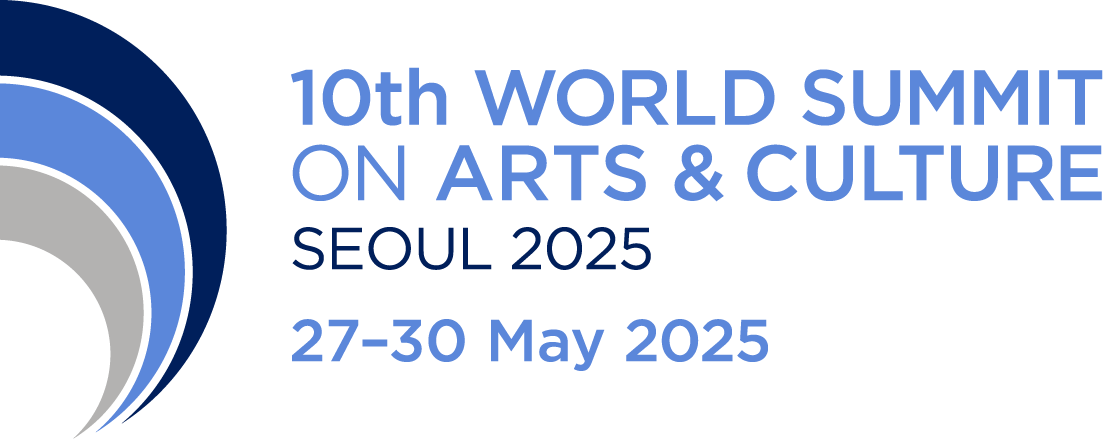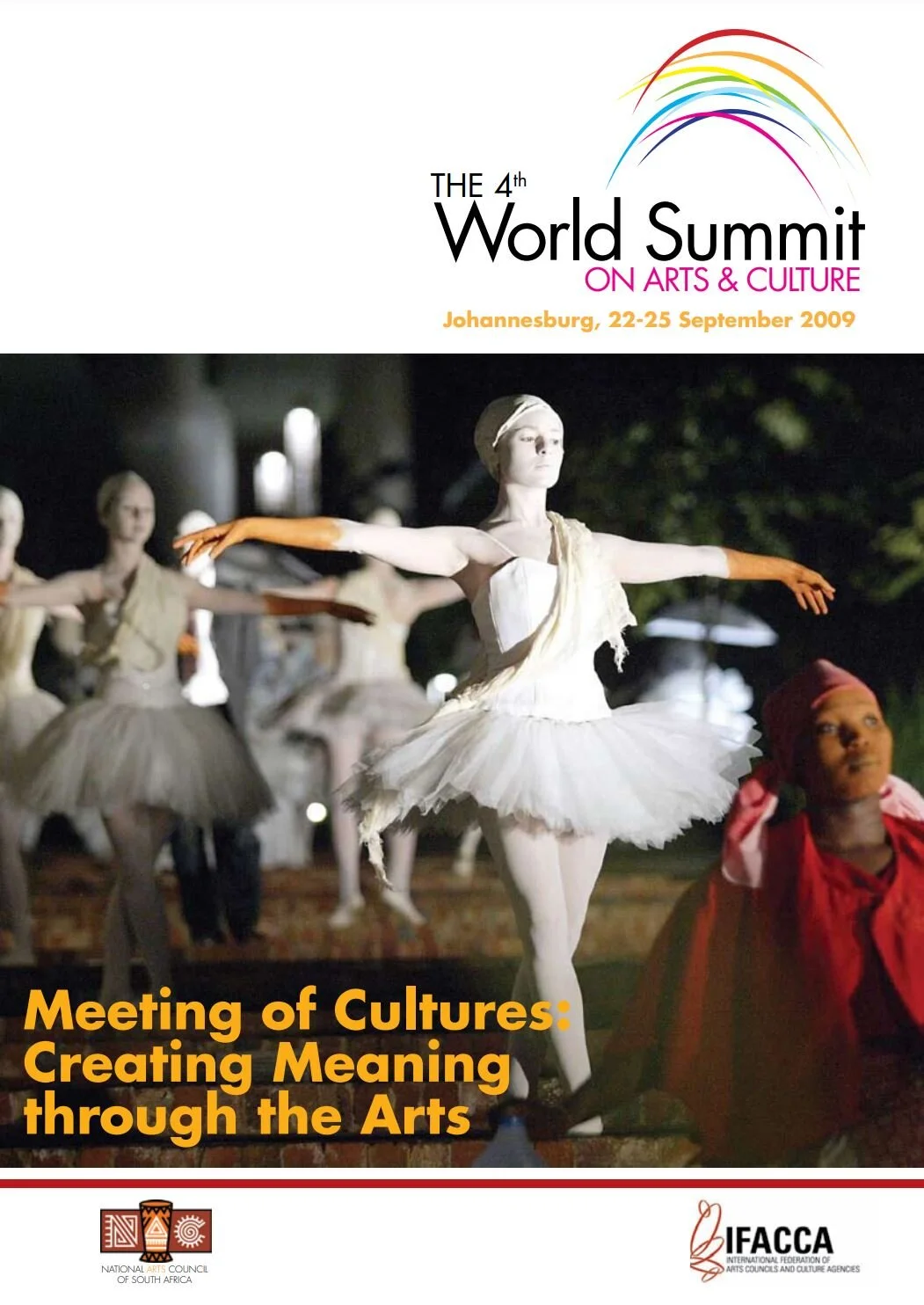Programme
The 4th World Summit explored the theme Meeting of Cultures: Creating Meaning through the Arts. The programme considered the post-9/11 context, with increasingly divided values, beliefs, religion, traditions and worldviews (that is, culture); addressed the role of the 2005 Convention on the Protection and Promotion of the Diversity of Cultural Expressions as an instrument to affirm diversity in the face of rapid globalisation and economic integration; and explored the opportunity for the arts to create bridges between cultures; as non-threatening points of entry into understanding other people, and as facilitators of intercultural dialogue and cultural diplomacy.
The 4th World Summit Programme was developed by Programme Director Mike van Graan, one of South Africa's leading playwrights, cultural activists and commentators, who was at the time Director of the African Arts Institute in Cape Town and head of the Secretariat of the Arterial Network, an informal network of individuals and organisations committed to developing the African creative sector.
Explore the full 4th World Summit on Arts and Culture programme.
Programme Participants
The 4th World Summit included keynote sessions with:
Baroness Lola Young OBE, former Head of Culture at the Greater London Authority and Professor of Cultural Studies at Middlesex University and academic and author Professor Njabulo Ndebele, who explored tensions between the arts as a vehicle for intercultural dialogue and their potential to reinforce cultural fault lines; and questioned how political need for social cohesion may affect the arts, and if artists should be burdened with facilitating intercultural dialogue.
Madeeha Gauhar, theatre maker and campaigner for the repeal of discriminatory laws against women and minorities and Stojan Pelko, State Secretary for the Ministry of Culture of Slovenia, who addressed the theme Cultural Diversity: Essential for World Peace or the Root of all Conflict? And questioned the prevailing assumption is that cultural diversity is a good thing and considered how cultural differences may seem to compound major crises.
The programme included 57 speakers from 30 countries, including:
Tade Adekunle (Nigeria)
Olu Alake (United Kingdom)
Korkor Amarteifio (Ghana)
Iman Aoun (Palestine)
Arturo Navarro Ceardi (Chile)
Laurent Clavel (France)
Mauricio Cruz (Brazil)
Mauricio Delfin (Peru)
Mary-Ann De Vlieg (Belgium)
Maude Dikobe (Botswana)
David Doyle (Australia)
Nicolette du Plessis (South Africa)
Max du Preez (South Africa)
Khadija El Bennaoui (Morocco)
Basma El Husseiny (Egypt)
Ryland Fisher (South Africa)
Gertrude Flentge (Netherlands)
Madeeha Gauhar (Pakistan)
Mercedes Giovinazzo (Spain)
Olivia Grange (Jamaica)
Lee Suan Hiang (Singapore)
Retha-Louise Hofmeyr (Namibia)
Chris Kabwato (Zimbabwe)
Mulenga Kapwepwe (Zambia)
Ammar Kessab (Algeria)
Ilona Kish (Belgium)
Gerard Lemos (England)
Motti Lerner (Israel)
Joy Mboya (Kenya)
Lebo Mashile (South Africa)
Christine Merkel (Germany)
Letila Mitchell (Fiji)
Lupwishi Mbuyamba (Mozambique)
Farai Mpfunya (Zimbabwe)
Shahid Nadeem (Pakistan)
Njabulo Ndebele (South Africa)
Mane Nett (Chile)
George Ngwane (Cameroon)
Mojisola Okuribido (Ghana)
Frank Panucci (Australia)
Stojan Pelko (Slovenia)
Patrice Walker Powell (USA)
Margie Reese (USA)
Alfonso Castellenos Ribot (Mexico)
Sanjoy Roy (India)
Albie Sachs (South Africa)
Steven Sack (South Africa)
T. Sasitharan (Singapore)
Wayne Sinclair (Jamaica)
Blaise Tsanga (Cameroon)
Nkanta George Ufot (Nigeria)
Yvette Vaughan Jones
Paul Wairoma (Kenya)
Andreas Wiesand (Germany)
Sheila Wright (United Kingdom)
Lola Young Chair (United Kingdom)
Read the full programme.


